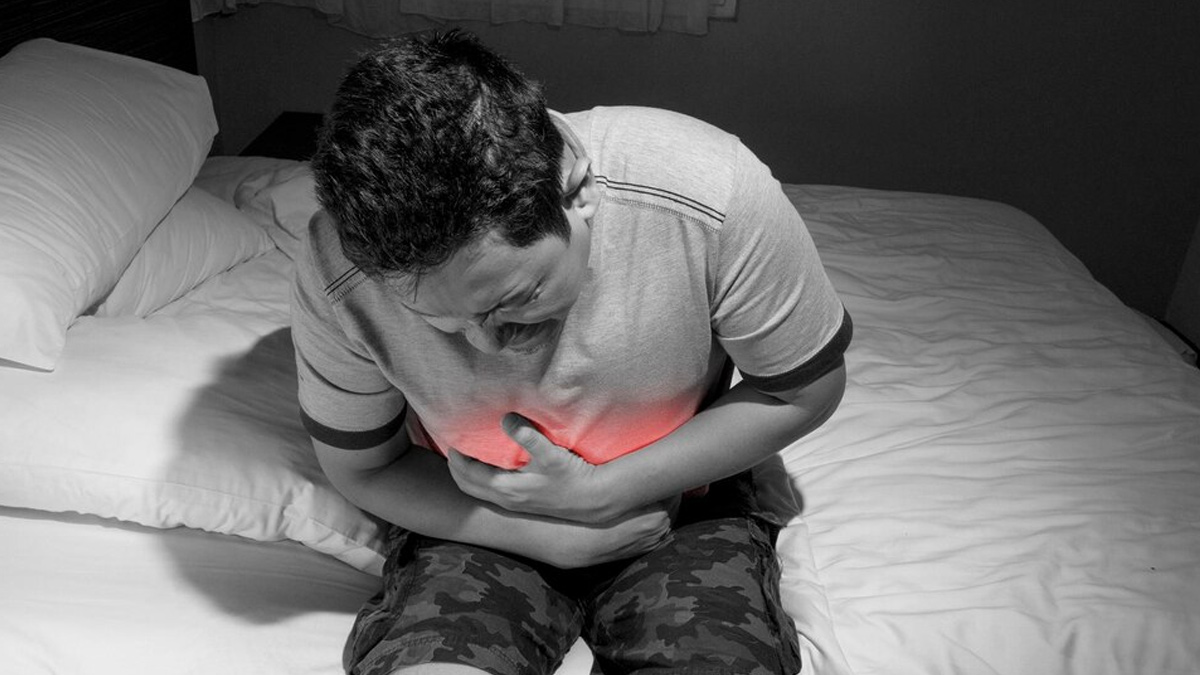
Many factors, including an irregular sleep schedule, a poor sleep environment, and sleep-related disorders, can ruin your sleep. But apart from that, indigestion and heartburn can also affect your sleep. This is because of the discomfort caused by acid reflux, which occurs when stomach contents flow back up into your oesophagus, irritating the esophageal lining and causing a burning sensation in the chest.
Table of Content:-
Nighttime heartburn can occur when you lie down to sleep or while you're already sleeping. Common triggers include having a heavy, spicy meal for dinner, overeating, smoking, and consuming alcohol. While anyone and everyone can develop the condition, the good news is that it is preventable. Below are 5 effective ways to avoid heartburn, especially at night.
Also Read: GERD: Foods That Trigger Acid Reflux and Heartburn
Keep Your Head Elevated

If you're someone who suffers from occasional heartburn, especially at night, it is advisable to keep your head elevated to reduce discomfort. According to WebMD, when you lie flat on the bed, your throat as well as your stomach rest on the same level, making it easier for stomach contents, including acids, to flow back up your oesophagus. This can lead to an increased incidence of heartburn, causing distress and leaving you restless.
Avoid Eating Right Before Bedtime
In a study published in the American Journal of Gastroenterology, people who ate dinner within three hours of going to sleep were seven times more likely to develop Gastroesophageal Reflux Disease (GERD) than those who waited four or more hours.
In an interaction with the OnlyMyHealth team, Dr Harshad Joshi, Principal Consultant - Gastroenterology, Hepatology and Therapeutic Endoscopy, Nanavati Max Super Speciality Hospital, Mumbai, recommended eating dinner at least 3–4 hours before lying down or sleeping to allow adequate time for digestion. This, he said, helps reduce the risk of nighttime reflux.
Make Right Food Choices

Certain foods can also trigger acid reflux and heartburn. These include:
- Fatty or fried foods
- Spicy foods
- Chillies
- Chocolates
- Creamy, cheesy, and fast food
- Citrus fruits and juices like grapefruit, orange, pineapple, and tomato
- Caffeinated drinks like coffee, tea, and aerated drinks
- Alcohol
Wear Loose Clothing
Medical News Today advises against wearing tight-fitting clothes and recommends opting for loose-fitting outfits. This is because tight clothes or belts are said to put extra pressure on the stomach, causing stomach acid to escape through the Lower Esophageal Sphincter (LES), a part of the body that prevents swallowed food from moving back up.
Also Read: If You're Suffering From Acidity, Here's The Right Way To Take Antacids As Per An Expert
Can Sleeping On The Left Side Help?

Several studies have suggested how sleeping positions can affect GERD symptoms, including acid reflux and heartburn.
A study published in the American Journal of Gastroenterology found that lying on the right side increased the number of acid reflux episodes, even though the amount of acid in the stomach itself wasn't affected.
On the other hand, various studies have found that sleeping on your left side is the best sleeping position for GERD. Explaining the reason behind it, Dr Joydeep Ghosh, Internal Medicine, Fortis Hospital, Anandapur, said that this particular position helps separate food and acid from the esophageal sphincter, which prevents the acid from flowing back up into the oesophagus.
Conclusion
Experiencing heartburn at night can be distressing. It can not only ruin your sleep but also affect your daily activities in the long run. The key is to follow proper dinner habits and bedtime rules, which include eating 3–4 hours before bedtime, having a light, non-acidic, non-spicy meal, keeping your head elevated, and sleeping on your left side. These basic measures can not only help prevent GERD symptoms, but they can also manage the condition effectively.
Also watch this video
How we keep this article up to date:
We work with experts and keep a close eye on the latest in health and wellness. Whenever there is a new research or helpful information, we update our articles with accurate and useful advice.
Current Version